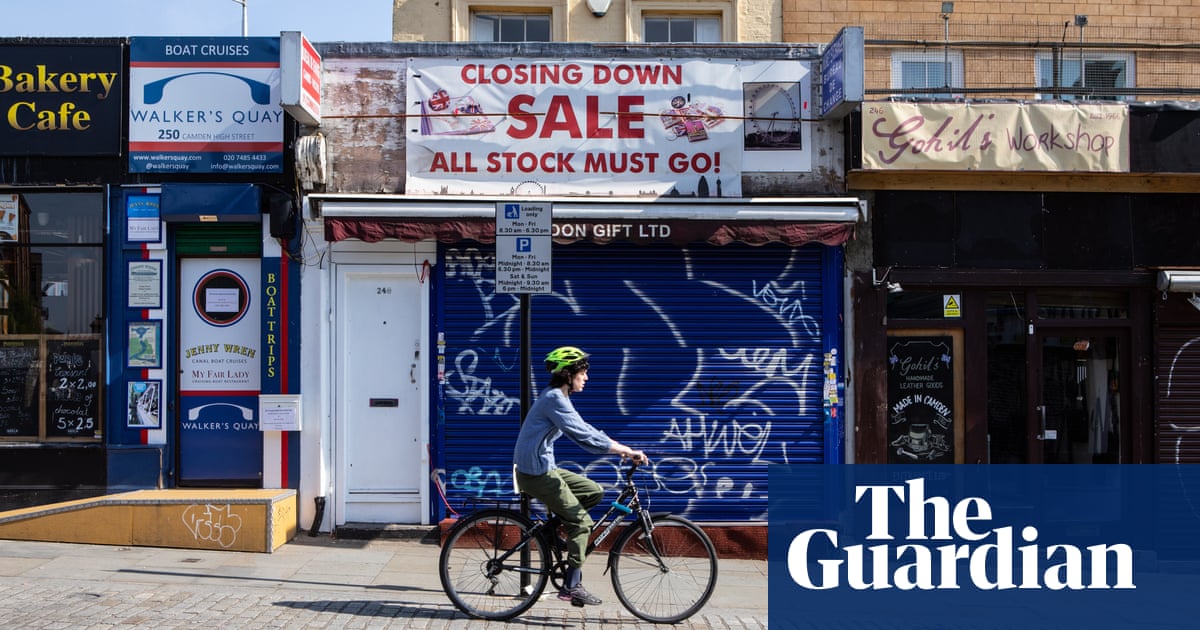
Student activists are preparing for the biggest wave of university rent strikes in four decades amid growing frustration at heavy-handed hall lockdowns, the prospect of paying for empty rooms and little face-to-face teaching when they eventually return in the new year.
There are at least 20 rent strikes currently under way or being organised on campuses, with activists at both Oxford and Sussex universities this week signing up hundreds of students ahead of the new term. Other institutions also preparing action include Goldsmiths, University of London, and Edinburgh and Cambridge universities.
Matthew Lee from Rent Strike, a grassroots group that is coordinating many of the campaigns, said students were fed up with being treated as cash cows for universities, especially in the midst of a pandemic when in-person teaching and campus life was so limited. “This is the biggest wave of student renter militancy in over 40 years,” said Lee. “The last time there was resistance on this scale was in the mid-1970s.”
Activists across the country are hoping to emulate a successful mass rent strike at Manchester University, which last month led it to cut rent in its halls by 30% for this term. However, the first-year students, who organised the campaign, are determined to join other universities to force rent cuts for the rest of the academic year.
The number of students pledging to withhold rent has tripled, with almost 600 ready to strike in January.
“We are going to keep withholding our rent,” said Ben McGowan, one of the Manchester organisers, who hasn’t had any real face-to-face teaching yet. “And we are helping other universities set up their own strikes because every student in the country deserves a rent cut.”
The movement in the city has been growing since hundreds of hall residents tore down fences erected to prevent them moving freely around the campus last month, intended, according to the university, as means to stop the spread of the virus.
McGowan said students are expecting rent cuts to cover the government’s staggered return, which will see students on non-practical courses come back across a five-week period. “Students should not be paying for halls when they are not there,” he said.
Nearly 200 students have pledged to withhold their rent in Sussex. “In 24 hours, we got 198 names,” said Ellie Concannon from Sussex Renters Union. “Students are getting desperate because money is going to very tight over the Christmas period.”
Concannon added there wasn’t enough support for new students struggling to make friends on largely shut-down campuses or to help them find scarce part-time work. “There are loads of students in dire situations … but there’s no availability for mental health services for months,” she said.
In Cambridge, more than 400 students have promised to join a rent strike amid anger at redundancies in some colleges. “The colleges are so rich they absolutely have the means to make rent cuts and ensure staff are not laid off,” said Laura Hone from Rent Strike Cambridge. “Yet they continually put profit ahead of the welfare of students and staff. They are run like businesses – that has become particularly stark in the context of the pandemic.”
Hone stressed that the strikes sweeping the country were about more than disruption during the pandemic. “The education system should prioritise the welfare of students and staff, but universities are not going to come to this conclusion on their own. Students have to make them listen and rent is the most powerful leverage we have.”
The largest rent strike in the country is at Bristol University, where more than 1,400 students have been demanding rent cuts, more support and no-penalty contract releases. They plan to continue next term and have signed up 200 more students in recent weeks.
“The national rent strike movement is really picking up speed,” said Saranya Thambirajah, one of the first-year strikers in the university’s halls. “We are going to keep on fighting for a 30% cut for the whole academic year.”
The National Union of Students president, Larissa Kennedy, said students had been encouraged to move into halls because universities were heavily dependent on rents and tuition fees. “Students have been essentially lied to,” she said. “They were told campuses would be safe and there would be face-to-face teaching but, within days of arriving, many found teaching was completely online – or everything bar two hours of in-person teaching was online. Understandably, students feel like they been trapped on campuses so universities can collect rent and fees.”
Kennedy said the increasing discontent was a “very clear rejection” of the post-2012 funding model for higher education, which requires universities to generate more revenue from students to make up for reduced funding from central government. “Universities have turned into mega landlords, collecting millions of pounds in rent every year,” she said. “A massive chunk of the inadequate maintenance support most students get is funnelled straight into these institutional landlords.”
Research by the NUS found that the average rent for student accommodation accounted for 73% of the student loan in 2018, up from 58% in 2012. Universities generated £1.9bn from residential operations, including hall rents, in the last academic year.
Bristol University said it would be offering students a 30% rent rebate for seven weeks to reflect the staggered return in 2021, along with penalty-free contract releases for students whose health has been impacted.
A Manchester University spokesperson said: “The university will be unable to provide further reductions, but students can decide to break their accommodation contract without financial penalty.”
The University of Sussex said staff were working tirelessly to ensure that living on campus was possible during the pandemic. Cambridge University said the majority of its students appreciated the high-quality education it had provided.












